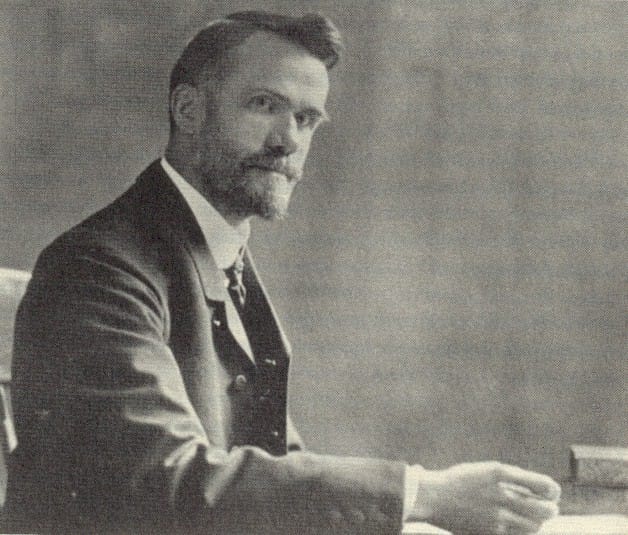You can’t make this stuff up.
Republican lawmakers in the mega-majority GOP General Assembly are pushing a pair of bills that hearken to the days of the Robber Barons.
HB 500 would yank away workers’ rights to meal and rest breaks on the job and trim their pay, to boot. HB 255 would weaken state child labor law. Both measures are sponsored by Rep. Phillip Pratt (R-Georgetown).
HB 500 cleared the Small Business and Information Technology Committee, which Pratt chairs, on a party-line vote of lawmakers present, with one Republican passing.
HB 255 passed the House 60-36, but 17 Republicans joined 19 Democrats in opposing the measure. (One Republican and one Democrat didn't vote.) It is in committee in the Senate.
It’s the same old Social Darwinism
Pratt's pets are no surprise. They reflect the fact that old-time, greed-is-good Social Darwinism is riding high among House and Senate Republicans.
I suspect that Pratt and many, if not most, of his fellow GOP lawmakers have never heard of Social Darwinism, the 19th-century philosophy loved by the rich and powerful. No matter – nearly all of them are Social Darwinists in principle, like their guy Trump and almost all Republicans everywhere these days.
Social Darwinism is a distortion of Charles Darwin's theory of biological evolution via natural selection, according to an American Museum of Natural History webpage, which explains: “Darwin passionately opposed social injustice and oppression. He would have been dismayed to see the events of generations to come: his name attached to opposing ideologies from Marxism to unbridled capitalism, and to policies from ethnic cleansing to forced sterilization. Whether used to rationalize social inequality, racism, or eugenics, so-called Social Darwinist theories are a gross misreading of the ideas first described in the Origin of Species and applied in modern biology.”
Many Social Darwinists extolled the “free market” as divinely inspired. “The growth of a large business is merely the survival of the fittest. ... It is merely the working-out of a law of nature and a law of God,” John D. Rockefeller, the multi-millionaire owner of Standard Oil, taught his Baptist Sunday School class. (While he was all-in for Social Darwinism, Rockefeller despised Darwin’s theory.)
More than a few Republicans act like “GOP” stands for “God’s Own Party.”
Anyway, Social Darwinists claimed that in societies, as in nature, it was survival of the fittest. They detested and demonized unions and laws to protect the poor and working classes and the environment against the avarice and abuses that naturally came with unfettered capitalism. They would have loved HB 500 and HB 255.
Social Darwinists exalted wealth. The ones who professed to be Christians said riches were a sign of God’s favor.
All Social Darwinists insisted that organized labor and government activism on behalf of the working class should be rejected because they “interfered” in the “natural” workings of the marketplace.
“Millionaires are the product of natural selection,” said philosopher William Graham Sumner, the country’s chief exponent of Social Darwinism. Rich people lived in luxury, he conceded, but insisted that “the bargain is a good one for society.”
Well-heeled ministers preached Social Darwinism in big churches. “There is not a poor person in the United States who was not made poor by his own shortcomings,” declared the Rev. Russell Conwell, also Baptist.
“Amens” rose from the plutocrats in the pews.
“The American Beauty rose can be produced … only by sacrificing the early buds which grow up around it,” Ida M. Tarbell quoted Rockefeller in The History of the Standard Oil Company. “This is not an evil tendency in business. It is merely the working-out of a law of nature and a law of God.”
Sobering up Social Darwinists with the Social Gospel
Kentucky State AFL-CIO President Dustin Reinstedler said some Frankfort lawmakers are “drunk with power.”
“It’s time we sober them up,” said Jeff Wiggins, state AFL-CIO secretary-treasurer. They didn’t name-check Pratt, but if the shoe fits ...
It’s also time to resurrect the Social Gospel.
The Social Gospel movement is probably not well-known among lawmakers in Frankfort either. But it arose in the latter decades of the 19th century as a Christian humanist alternative to the inhumanity of Social Darwinism. Movement members said Social Darwinists perverted the teachings of Jesus Christ.
“The social gospel’s origins are often traced to the rise of late 19th-century urban industrialization, immediately following the Civil War,” Christopher H. Evans wrote in The Conversation. “Largely, but not exclusively, rooted in Protestant churches, the social gospel emphasized how Jesus’s ethical teachings could remedy the problems caused by ‘Gilded Age’ capitalism.”

The Social Gospel movement included many pastors who preached that people of faith should be concerned about the here-and-now, not just the hereafter. The Baptist Rev. Walter Rauschenbusch sermonized that Christianity “is not a matter of getting individuals to heaven, but of transforming the life on earth into the harmony of heaven.”
Father John Augustine Ryan, a Catholic social reformer, wrote “A Programme of Social Reform By Legislation,” an article published in The Catholic World in 1909. He called for “a legal minimum wage, an eight-hour limit on the work day, protective legislation for women and children, protection for union picketing and boycotting, unemployment insurance, provision against accident, illness and old age, municipal housing, public ownership of utilities, public ownership of mines and forests, control of monopolies, and an income tax.”
Social Gospel movement leaders “took Jesus’s message ‘love thy neighbor’ into pulpits, published books, and lectured across the country,” Evans also wrote. “Other leaders, mostly women, ran settlement houses designed to alleviate the sufferings of immigrants living in cities like Boston, New York, and Chicago. Their mission was to draw attention to the problems of poverty and inequality – especially in America’s growing cities.”
The movement supported civil rights, women’s rights, worker rights, unions, the 40-hour work week, worker safety and health laws, a living wage, and the abolition of child labor.
MLK and the Social Gospel
Evans wrote that Rauschenbusch greatly influenced Dr. Martin Luther King, also a Baptist, whom Evans quoted: “It has been my conviction ever since reading Rauschenbusch that any religion which professes to be concerned about the souls of men and is not concerned about the social and economic conditions that scar the soul, is a spiritually moribund religion only waiting for the day to be buried.”
King saw the civil rights and labor movements as natural allies. “As I have said many times, and believe with all my heart, the coalition that can have the greatest impact in the struggle for human dignity here in America is that of the Negro and the forces of labor, because their fortunes are so closely intertwined,” he wrote in a letter to the Amalgamated Laundry Workers in 1962.








